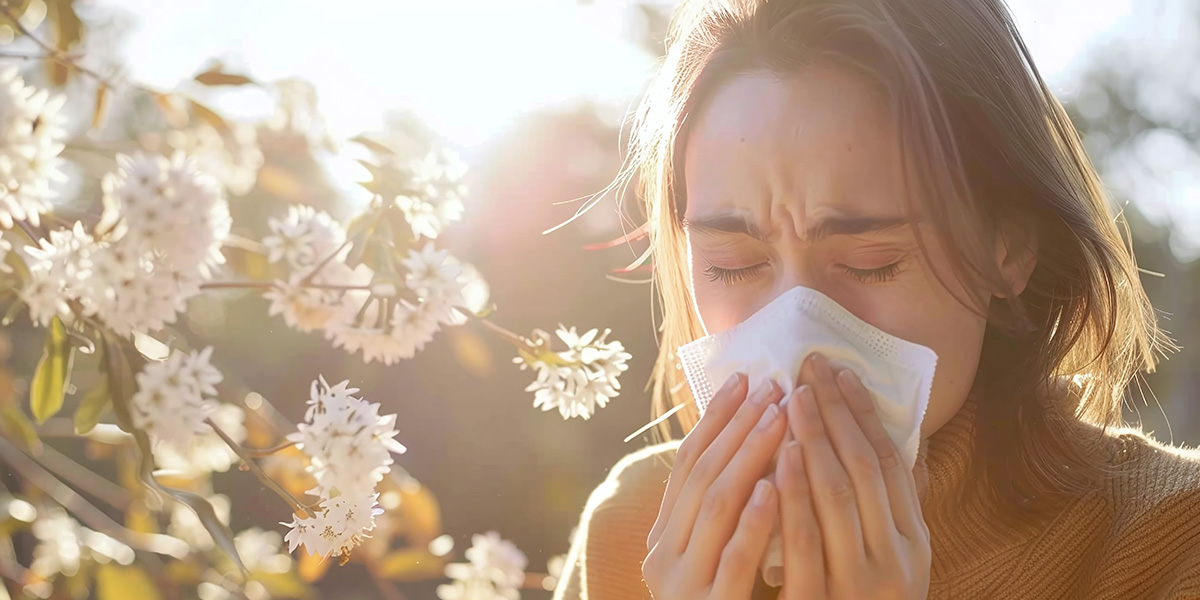Summer Allergy Survival Guide: Managing Seasonal Symptoms
Summer on the East Coast is synonymous with outdoor activities, sunshine, and warm breezes. For many, however, it also brings the unwelcome return of seasonal allergies. At Sheridan Medical Group, our commitment is to partner with you to achieve optimal health and well-being. Understanding and managing your summer allergy symptoms is key to enjoying everything this beautiful season has to offer.
Allergies are your immune system's overreaction to normally harmless substances like pollen, mold spores, or dust mites. When these "allergens" are inhaled, they can trigger a cascade of uncomfortable symptoms that can dampen your summer fun.
Understanding Summer Allergens
While tree pollen often peaks in spring, summer brings its own unique set of airborne culprits:
- Grass Pollen: Common grasses like Timothy, Orchard, and Bermuda are significant allergy triggers during the summer months across various regions.
- Weed Pollen: Weeds such as Ragweed (a major late-summer and fall allergen in many East Coast areas), Pigweed, and Lamb's Quarters can release pollen throughout summer.
- Mold Spores: These thrive in warm, humid conditions, which are often present after summer rains or in damp outdoor areas. Molds can also flourish indoors in basements or bathrooms.
- Dust Mites: While present year-round, dust mite populations can increase in warmer, more humid conditions, especially indoors.
Common Summer Allergy Symptoms
If you're experiencing any of the following, summer allergies might be to blame:
- Sneezing
- Runny or stuffy nose
- Itchy, watery eyes
- Itchy throat, mouth, or ears
- Post-nasal drip
- Coughing
- Fatigue (due to disrupted sleep from symptoms)
Your Summer Allergy Survival Guide: Expert Tips
Don't let seasonal allergies keep you indoors! Here are practical strategies from Sheridan Medical Group to help you manage your symptoms and reclaim your summer:
- Monitor Local Pollen and Mold Counts: Many weather apps and websites provide daily local allergen forecasts. On days with high counts, try to limit extended outdoor activities, especially during peak pollen hours (often mid-morning to early evening).
- Keep Windows Closed: During high pollen times, keep windows and doors shut, particularly in your home and car, to prevent allergens from entering. Use air conditioning, which can filter allergens from the air.
- Shower and Change After Outdoor Activities: Pollen can cling to your hair, skin, and clothes. A quick shower and changing into clean clothes after spending time outdoors can help remove allergens before they spread throughout your home.
- Wash Bedding Regularly: Wash sheets, pillowcases, and blankets in hot water (at least 130°F) weekly to kill dust mites and remove accumulated allergens.
- Use Allergen-Proof Covers: Consider using allergen-proof encasings for your mattresses and pillows to create a barrier against dust mites.
- Clean Your Home Strategically:
- Use a vacuum cleaner with a HEPA filter.
- Damp mop hard floors to trap allergens instead of scattering them.
- Clean air filters in your HVAC system regularly (every 1-3 months).
- Consider Over-the-Counter Medications:
- Antihistamines: Can help relieve sneezing, itching, and runny nose.
- Nasal Steroid Sprays: Often considered the most effective treatment for nasal allergy symptoms, reducing inflammation.
- Decongestants: Can provide temporary relief for stuffiness (use with caution and as directed, especially if you have high blood pressure).
- Rinse Your Nasal Passages: Using a neti pot or saline rinse can help flush pollen and irritants from your nasal passages, providing natural relief. Use distilled, sterile, or previously boiled water.
- Stay Hydrated: Drinking plenty of fluids can help thin mucus and soothe an irritated throat.
- Limit Pet Dander Spread: If you have pets that spend time outdoors, they can bring pollen indoors on their fur. Wipe down their fur when they come inside and consider grooming them more frequently.
When to Seek Professional Help
If your allergy symptoms are severe, persistent, or significantly impacting your quality of life despite self-care measures, it's time to consult with a healthcare professional. Your primary care provider at Sheridan Medical Group can:
- Accurately diagnose your allergies.
- Prescribe stronger medications if needed.
- Discuss long-term management strategies, including referrals to allergy specialists for further testing or immunotherapy (allergy shots).
At Sheridan Medical Group, we are dedicated to helping you "Get Well, Be Well, and Stay Well" through comprehensive, individualized care. Don't let allergies sideline your summer plans. Reach out to us for personalized advice and support.


